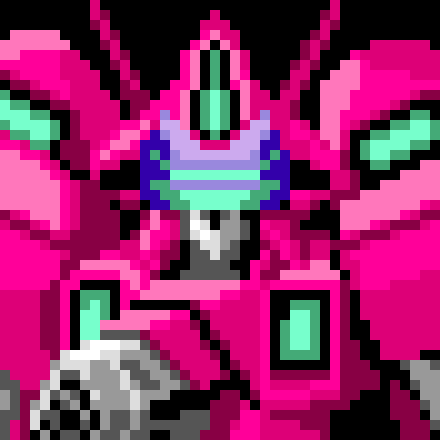- cross-posted to:
- art@hexbear.net
- cross-posted to:
- art@hexbear.net
Title: Lenin holding the Soviet flag while walking through a field of grain, in the style of van gogh
cross-posted from an old post: https://hexbear.net/post/218850
I’ll share some of my favorite stories of Lenin.
CHUEV: Who was more severe, Lenin or Stalin? MOLOTOV: Lenin, of course. He was severe. In some cases he was harsher than Stalin. Read his messages to Dzerzhinsky. He often resorted to extreme measures when necessary. He ordered the suppression of the Tambov uprising, that everything be burned to the ground. I was present at the discussion. He would not have tolerated any opposition, even had it appeared. I recall how he reproached Stalin for his softness and liberalism. “What kind of a dictatorship do we have? We have a milk-and-honey power, and not a dictatorship!”
CHUEV: Where is it written that he reproached Stalin?
MOLOTOV: It was in a small circle among us. Here is a telegram from Lenin to a provincial food commissar in his native Simbirsk in 1919: “The starving workers of Petrograd and Moscow are complaining about your inefficient management…. I demand from you maximum energy, a no-holds-barred attitude to the job, and thorough assistance to the starving workers. If you fail, I will be forced to arrest the entire staff of your institutions and to bring them to trial…. You must immediately load and send off two trains of 30 cars each. Send a telegram when this is complete. If it is confirmed that, by four clock, you did not send the grain and made the peasants wait until morning, you will be shot. Sovnarkom Chairman, Lenin.” I remember another case. Lenin had received a letter from a poor peasant of Rostov province saying that things were bad with them, that no one paid any attention to them, the poor peasants, that there was no help for them and that, on the contrary, they were oppressed. Lenin proposed the formation of a group of “Sverdlovers [adults from Sverdlov University]….” Lenin directed this group to go to the place in question and, if the report was confirmed, to shoot guilty parties right then and there and to rectify the situation. What could be more concrete? Shoot on the spot and that’s that! Such things happened. It was outside the law, but we had to do it…. Lenin was a strong character. If necessary, he seized people by the scruff of their necks.
CHUEV: They say that Lenin had nothing to do with the execution of the tsar’s family in 1918, that it was a decision of the local authorities following Kolchak’s attack…. But some people say it was revenge for Lenin’s brother.
MOLOTOV: They make Lenin out to be a crank. They are small-fry philistines who think this. Don’t be naive. I think that, without Lenin, no one would have dared to make such a decision. Lenin was implacable when the Revolution, Soviet power, and communism were at stake. Indeed, had we implemented democratic solutions to all problems, this would surely have damaged the state and the party. Issues would have dragged on for too long and nothing good would have come of this sort of formal democracy. Lenin often resolved critical problems by himself, on his own authority.
Chuev, Feliks. Molotov Remembers. Chicago: I. R. Dee, 1993, p. 107-109
and someday he will be young again
Man deserves to be buried.
By a reborn Soviet Union, preferably.
deleted by creator
When a liberal is abused, he says, ‘Thank God they didn’t beat me.’ When he is beaten, he thanks God they didn’t kill him. When he is killed, he will thank God that his immortal soul has been delivered from its mortal clay.
The Government’s Falsification of the Duma and the Tasks of the Social-Democrats
A communist who allowed himself to become as ignorant of world affairs as is the average American politician would be “cleaned out” of the party,…. The emotional vagueness which is a feature of all capitalist political platforms, and which is indeed desired in order to win wide support without being too definite, is the exact opposite of communist statements….
This [Marxism] is no dogma to be learned once for all; it is a developing body of thought, constantly applied to and affected by new conditions. By the very theory of dialectics, these forces are changing. The speeches of Lenin and Stalin and other party leaders never deal in stirring oratory or spell-binding generalities but in close and careful analysis. Stalin would no more attempt to sway a communist Congress by “force of personality” expressed in brilliant oratory and colorful phrasing, than Edison would have expected to convince a group of American engineers of the reliability of some new formula by emotional words. One such attempt would ruin either an Edison or Stalin.
Strong, Anna Louise. This Soviet World. New York, N. Y: H. Holt and company, c1936, p. 29-30
Lenin did not at all conform to the accepted idea of an orator. He was just a man speaking. Except at certain periods (notably the days of October) when it was important that the direct and immediate impulses of the people should be aroused, and when it was necessary at all costs to make an impression on the mighty surging tide of humanity, Lenin made hardly any gestures at all when he spoke. At congresses, people commented on his quietness and even on the “dryness” of his delivery. He merely endeavored to persuade his listeners, to convey his convictions from within, not from without, by the weight of their contents, as it were, and not by the gesticulations of the container. The oratorical gestures which are sometimes seen in representations of him are not quite correct, and he may be said never to have moved so much as in his statues.
Barbusse, Henri. Stalin. New York: The Macmillan company, 1935, p. 38
The simple and efficient method of delivery which Lenin employed was also that which Stalin had instinctively adopted and which he was destined never to abandon (he has even accentuated it).
Barbusse, Henri. Stalin. New York: The Macmillan company, 1935, p. 39
Hopefully his century long recovery slumber comes to an end

The proof of Lenin’s philosophy and actions is their continued relevance in our current day.
I found a YouTube link in your comment. Here are links to the same video on alternative frontends that protect your privacy:
I found a YouTube link in your comment. Here are links to the same video on alternative frontends that protect your privacy:







